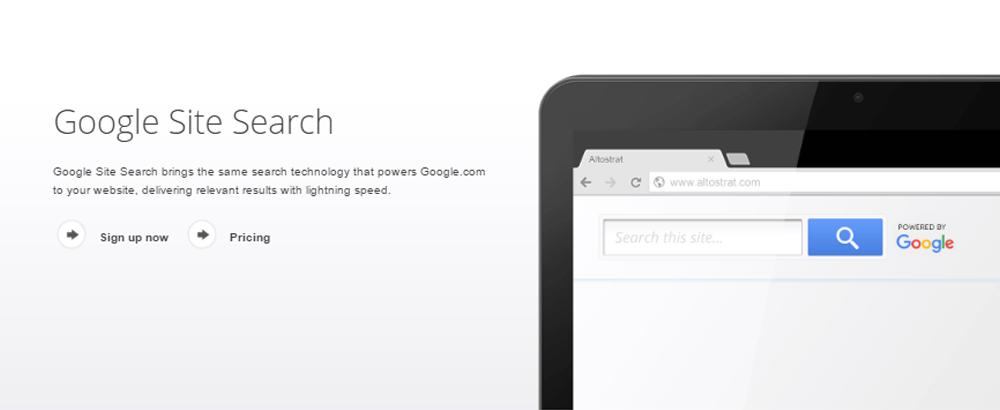
Google Site Search (GSS, or previously known as Google Custom Search Business Edition) is an edition of Google Custom Search that is designed for websites that want to incorporate the company's search engine capabilities into their platform.
With the looks and feel that can be customized, any website can create a custom search field that is powered by the same technology that powers Google.com.
In short, people can have their very own search engine on their website.
But things are changing. In an email to Google Site Search customers and partners on February 21st, 2017, Google announced its plan to discontinue the product it has sold to millions of web publishers since 2008.
Existing customers can keep using GSS for the life of their current license, and it will also provide customers with technical support through the duration of license agreements. But Google is not anymore selling new licenses or renewals starting April 1st.
So once GSS customer's allocation of search queries is over, the account will "automatically convert" to the company's ad-supported Custom Search Engine (CSE).
GSS users whose contracts expire between April 1 and June 30, 2017, will get a free three-month extension to their service with an additional queries.

Google's Custom Search Engine (CSE) provides pretty much the same features and functions to GSS, according to the email.
The main difference is that CSE is free but ad-supported. It also highlights Google's branding and have less customization options if compared to GSS.
Google charges GSS customers based on the number of searches their website are having annually. So for example, a blog that has 20,000 searches a year would pay $100 whereas a larger company might need to spend $2,000 for 500,000 queries. Those that require a higher number of searches have to contact Google for pricing.
Because Google wants to discontinue GSS, the company recommends all GSS customers to study the differences between GSS and CSE. And those that don't want to use CSE to replace GSS, are opted to remove their existing search engine on their websites.
